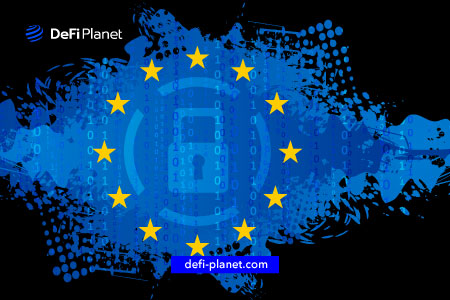The crypto space has witnessed tremendous growth in recent years, capturing the attention of several governments. A once-unnoticed industry is now brimming with diverse regulations and policies to guide the operations of crypto exchanges, blockchain platforms, crypto enthusiasts, and other industry participants.
As cryptocurrency adoption spreads, more people in Europe are utilizing this type of digital asset. According to GlobalWebIndex, 4 percent of European internet users in 17 markets own cryptocurrencies.
Governments in Europe, particularly those in charge of the European Union, are not left out, as they, in recent times, have voiced their opinions about digital assets such as cryptocurrencies and NFTs.
Are Cryptocurrencies Legal in the EU?
The legislation governing the use of cryptocurrencies differs from country to country.
However, as an entity, the European Union considers cryptocurrencies to be legal.
In Europe, everyone can own and use cryptocurrencies of their choice as long as they do not violate the law. Residents need to fulfill the Know Your Customer (KYC) process and Anti-Money Laundering (AML) requirements when using crypto platforms such as exchanges in various European countries. France, for example, has included the AML component to decrease the likelihood of residents laundering money using cryptocurrency.
They are strict about their regulations and demand that crypto platforms, particularly exchanges operating in their nation, comply with them.
Recently, Binance was licensed to operate in France by the French financial authority, Autorité des marchés financiers (AMF). As a result of the license, Binance was required to establish a subsidiary that catered only to French residents and adhered to the guidelines stipulated by the AMF.
If a French crypto enthusiast wishes to sign up on Binance, they must provide proof of identity and personal details. This procedure is prevalent in some countries in Europe.
The European Union is actively interested in cryptocurrency. With Russia’s invasion of Ukraine, the EU has been closely monitoring the situation to ensure that Russian elites do not evade sanctions through the use of cryptocurrencies. Some strategies have been implemented to ensure this.
In January 2020, the European Union issued its Fifth Anti-Money Laundering Directive (5AMLD). The directives were intended to ensure that crypto exchanges operating in Europe were subject to the region’s Anti-Money Laundering (AML) guidelines. This implied that cryptocurrency exchanges were required to ask for their clients’ identities in compliance with KYC and AML standards.
To ensure that the guidelines were adhered to by all parties, the EU issued another directive known as the Sixth Anti-Money Laundering Directive (6AMLD).
Is crypto mining legal in Europe?
The two most common types of consensus mechanisms are Proof-of-Work (PoW) and Proof-of-Stake (PoS). Early cryptocurrencies, such as Bitcoin and Litecoin, utilize the Proof-of-Work consensus mechanism. The PoW system requires miners to utilize large amounts of computational power before they can mine a block or validate transactions. Ethereum utilizes the Proof-of-Stake (PoS) consensus mechanism.
DeFi Planet provides comprehensive overviews of the Proof-of-Work and Proof-of-Stake consensus mechanisms.
“Every blockchain has a mechanism for validating transactions, and it may vary from its counterparts. In a PoW chain, miners are given the power to create new blocks and validate transactions. To choose the miner that will carry out this task, a complex mathematical puzzle is set and the first to solve it can verify the transactions. Solving this mathematical puzzle needs intense energy, and that is why the process of mining is energy-consuming.
Once a transaction is verified and added to the blockchain by the miner, it becomes immutable, meaning that it can’t be altered. The miners are rewarded for their service.”
As more Bitcoin is mined and the number of miners increases, so do the minimum hardware and computing power requirements. Several miners expend vast resources on creating mining farms that consume a high amount of electricity.
This has intensified calls from environmentally-conscious organizations, who fear that cryptocurrencies are harmful to the environment.
Some countries, such as China, have openly prohibited cryptocurrency mining, and violators face harsh penalties.
The validation process for Proof-of-stake cryptocurrencies is more sustainable as validators do not require a high level of computing power or electricity to verify transactions and create blocks. This is considered to be more environmentally friendly.
The year 2022 began with a fierce debate over cryptocurrency mining.
Different schools of thought hold opposing views on cryptocurrency mining and its implications for the environment. In March 2022, the European Union issued a directive that affected crypto mining operations in the region.
According to a report, “The European Union has rejected a proposed rule that could have banned the cryptocurrency Bitcoin across the bloc but set new draft rules to protect consumers and make mining more sustainable.”
It went on to state, “A last-minute addition to the bill was made over the weekend, which aimed to limit the use of cryptos that are powered by the energy-intensive process called proof-of-work (PoW). But it was voted down by the parliamentary committee on Monday.”
The European Union believes that for regulations governing crypto mining to be effective, they should be standardized across countries. Aside from the aforementioned, the approved regulations are intended to promote sustainable methods of cryptocurrency mining, including “measures for consumer protection and safeguards against market manipulation and financial crimes.”
According to Stefan Berger, an MEP of the European People’s Party, “With the adoption of the MiCA report, the European Parliament has paved the way for an innovation-friendly crypto-regulation that can set standards worldwide.”
Is there a crypto tax law in Europe?
Different European countries have different tax laws regarding the use of cryptocurrencies. Some charge little or no tax, while others have a higher tax rate.
The capital gains tax is the most common tax levied on cryptocurrencies in Europe.
Rates are often based on profits and range between 0% and 50%.
Typically, cryptocurrency enthusiasts are not permitted to deduct tax losses made from cryptocurrencies to other asset classes.
Regarding VAT, most countries do not have one because the Court of Justice of the European Union ruled that “bitcoin transactions are exempt from VAT under the provision concerning transactions relating to currency, bank notes, and coins used as legal tender.”
As always, confirm with the appropriate professionals and authorities. Tax laws are known to change, and it is imperative to confirm the current state with the local professionals.
Are crypto exchanges allowed to operate in Europe?
The European Union has not prohibited traditional financial organizations from using or owning digital assets such as cryptocurrencies, because this type of asset is regarded as a qualified financial instrument (QFI).
Before they may operate in the EU, cryptocurrency exchanges must meet certain requirements.
To provide QFI services to residents, they must obtain the necessary license.
Traditional financial institutions already possess the QFI license, meaning that they can hold and use cryptocurrencies in any way they deem fit, as long as it is within the confines of the law.
Some countries in the EU depend on the Union’s general framework for crypto exchanges, while others have additional requirements that these organizations have to fulfill before they are allowed to operate.
In Conclusion,
- The European Union does not prohibit cryptocurrency usage.
- Different member states have varying regulations regarding the use of digital assets.
- Crypto exchanges must fulfill a certain level of requirements before they are allowed to operate in Europe. Some member states impose additional requirements.
- The EU has not prohibited cryptocurrency mining, though certain member states have.
- Some European countries charge crypto tax, hence, it is crucial to cross-check the laws guiding this before engaging in crypto-related transactions in Europe.
- Before crypto users can use a centralized cryptocurrency exchange in Europe, they must undergo Know Your Customer (KYC) and Anti-Money Laundering (AML) processes.
If you would like to read more news articles like this, visit DeFi Planet and follow us on Twitter, LinkedIn, Facebook, and Instagram.
“Take control of your crypto portfolio with MARKETS PRO, DeFi Planet’s suite of analytics tools”





















